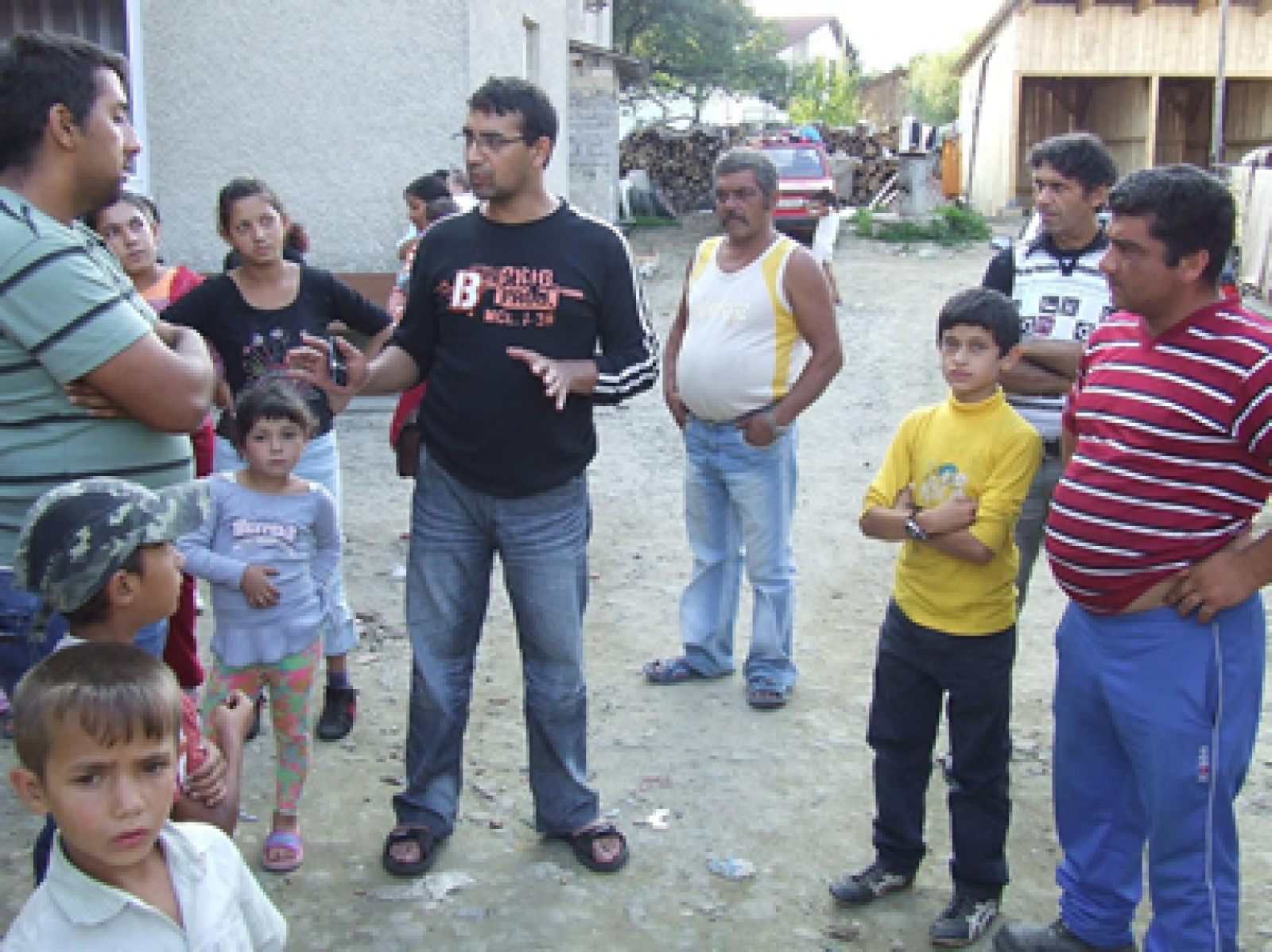
SHARE
The largest ethnic minority in Central and Eastern Europe, Roma continue to face discrimination and marginalization due to poverty, social ills and, in many cases, physical isolation. They are significantly underrepresented in mainstream political parties, hold few elected offices and have been unable to use political channels to solve many economic and social problems that affect their communities. NDI has been working with local candidates and political parties throughout the region in an effort to help Roma secure more equal political representation at all levels of government.
In Bulgaria, political parties are reaching out to the country's Roma communities with the help of the Open Society Institute, the Alumni Club of Romani Parliamentary Interns and NDI.
After a multi-party conference last summer helped raise awareness of Roma issues, about 15 Roma candidates were included on party lists during parliamentary elections in July. One of the candidates, Milena Hristova, a 29-year-old Roma politician from the Evroroma party, won a seat in parliament, becoming the first Roma woman MP in the region.
The conference also prompted some of the parties to sign agreements for cooperation: the incumbent Bulgarian Socialist Party with the ROMA and Evroroma parties and the Blue Coalition with the Shtit party. Citizens for European Bulgaria (GERB), which won the elections, signed a memorandum with 12 Roma NGOs and adopted their recommendations for a new strategy to tackle Roma problems in a holistic manner. Recognizing the complexity of the Roma's problems, the parties are taking steps to reach out to Romani activists and community leaders to find the most comprehensive solutions.
NDI continues to work with Roma activists, providing follow-up monitoring with the political parties and advocacy on Roma issues after the elections. The activists' involvement in two events this fall — the drafting of the new government's four-year program and the drafting of the state budget for 2010 — is particularly important. The promises GERB made on Roma issues during the campaign are not reflected in the four-year plan, so it will be essential to secure funding to ensure the Roma's proposed programs are actually implemented.
In Slovakia, Roma candidates from across the country came together in August to learn from each other and from former Roma candidates as they prepare to run in Nov. 14 regional parliamentary elections. As part of NDI's Roma Regional Initiative, NDI staff held regional election team trainings in August in the districts of Spisska Nova Ves, Poltar and Bardejov. The programs focused on how to build campaign teams on cooperation and communication among the Roma candidates.
Alumni of previous NDI training programs Peter Pollak and Stefan Sarkozy led the training sessions along with Tomas Hrustic, a staff member in NDI's Slovakia office. Pollak, a prominent Roma candidate from Spisska Nova Ves, inspired the other participants with stories from his 2005 campaign in which he fell short of winning a seat in parliament by less than 200 votes.
The trainings corresponded with the outbreak of anti-Roma protests in eastern Slovakia, which participants said made them particularly relevant. Program participants said they thought it was important to demonstrate how Roma candidates can unite in order to represent Roma on the local as well as regional level.
Building on the momentum of the August trainings, the four Slovak Roma candidates and their teams continue to participate in trainings led by NDI, with support from the Roma Public Policy Institute (RPPI). In September, NDI held a seminar for the candidates and select members of their teams on the use of media and graphic design as marketing tools for the campaign. In October, NDI program officers traveled to four districts to work with the candidates and their campaign teams on direct communication with the voters. With their new campaign skills and strategies, the Roma candidates are hoping to win seats in the coming November elections.
Read more about the Regional Roma Initiative»
Related: Read NDI's assessment of barriers to Roma political participation in Romania»
Pictured above: Albin Cina talks to his campaign team members and local leaders in Snakov, Slovakia
Published November 2, 2009


